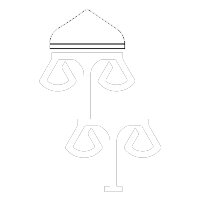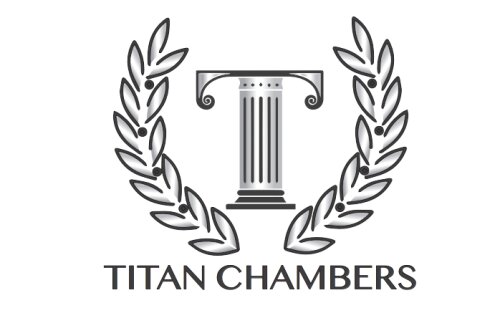Best Appeal Lawyers in Trinidad and Tobago
Share your needs with us, get contacted by law firms.
Free. Takes 2 min.
Or refine your search by selecting a city:
List of the best lawyers in Trinidad and Tobago
About Appeal Law in Trinidad and Tobago
Appeal law in Trinidad and Tobago serves as a mechanism for parties to challenge decisions made by lower courts. The Court of Appeal hears civil and criminal cases where there is a belief that an error occurred at trial. The appeal process is integral to the justice system, providing a means to rectify errors and ensure fair outcomes. Trinidad and Tobago's judicial system recognizes the right to appeal, balancing the interests of justice while ensuring that legal procedures have been properly followed.
Why You May Need a Lawyer
There are several situations where you might require legal assistance in the appeal process. You may seek a lawyer if:
- You believe there has been a legal error in your case.
- You are dissatisfied with the decision of a lower court.
- Your original lawyer advises that there are grounds for an appeal.
- You wish to challenge procedural mishaps or new evidence has emerged.
- You seek guidance on interpreting complex legal language and requirements.
- You need assistance with preparing and presenting your appeal effectively.
Local Laws Overview
The appeal process in Trinidad and Tobago is governed by specific laws and procedural rules. Some key aspects include:
- The Criminal Procedure Act and Civil Proceedings Rules govern the appeal process.
- Time limits are crucial, and missing them can forfeit your right to appeal.
- Not all decisions are appealable; interlocutory orders might require leave to appeal.
- The Court of Appeal holds authority to affirm, reverse, or modify lower court decisions.
- Appeal hearings focus on reviewing the legal application of the lower courts rather than presenting new evidence.
- The Caribbean Court of Justice serves as the final appellate court.
Frequently Asked Questions
What is an appeal?
An appeal is a legal process where a higher court reviews the decision of a lower court. It is designed to correct errors of law or procedure.
Can I appeal any court decision?
Not all court decisions can be appealed. Generally, final judgments are appealable, while some interlocutory decisions require permission.
What is the time limit for filing an appeal?
Time limits vary, but typically an appeal must be filed within 42 days from the date of the judgment in civil cases, and within 14 days for criminal cases.
Do I need a lawyer to file an appeal?
While not mandatory, it is highly recommended to have a lawyer due to the complexity and technical nature of the appeals process.
What are the chances of a successful appeal?
Success depends on the merits of the case, including the presence of legal errors in the initial ruling and the quality of the appeal presentation.
What happens if my appeal is denied?
If your appeal is denied, the original court decision stands. You may consider further appeal to a higher court, subject to legal advice.
Can I introduce new evidence during an appeal?
Generally, appeals are based on the record of the lower court, and new evidence is not admitted unless there are exceptional circumstances.
How long does the appeal process take?
The duration varies depending on the case's complexity and court schedules, ranging from several months to over a year in some cases.
What is the cost of appealing a decision?
Costs can vary significantly, including filing fees, legal fees, and other expenses. It's advisable to get a cost estimate from a lawyer before proceeding.
What is the role of the Caribbean Court of Justice in appeals?
The Caribbean Court of Justice acts as the final court of appeal for Trinidad and Tobago, particularly in significant constitutional and civil matters.
Additional Resources
For more information and assistance, consider contacting:
- The Judiciary of Trinidad and Tobago: Provides general information and resources related to the appeal process.
- Legal Aid and Advisory Authority: Offers services for those who may require legal assistance but cannot afford it.
- The Law Association of Trinidad and Tobago: Can help you find a qualified lawyer specializing in appeals.
Next Steps
If you believe you need legal assistance with an appeal, consider the following steps:
- Consult with an attorney to evaluate the merits of your case.
- Ensure that you understand the applicable time limits for filing an appeal.
- Prepare all relevant documentation and evidence from your original trial.
- Consider your financial situation and seek legal aid if necessary.
- Stay informed throughout the process to ensure that you make well-guided decisions.
Lawzana helps you find the best lawyers and law firms in Trinidad and Tobago through a curated and pre-screened list of qualified legal professionals. Our platform offers rankings and detailed profiles of attorneys and law firms, allowing you to compare based on practice areas, including Appeal, experience, and client feedback.
Each profile includes a description of the firm's areas of practice, client reviews, team members and partners, year of establishment, spoken languages, office locations, contact information, social media presence, and any published articles or resources. Most firms on our platform speak English and are experienced in both local and international legal matters.
Get a quote from top-rated law firms in Trinidad and Tobago — quickly, securely, and without unnecessary hassle.
Disclaimer:
The information provided on this page is for general informational purposes only and does not constitute legal advice. While we strive to ensure the accuracy and relevance of the content, legal information may change over time, and interpretations of the law can vary. You should always consult with a qualified legal professional for advice specific to your situation.
We disclaim all liability for actions taken or not taken based on the content of this page. If you believe any information is incorrect or outdated, please contact us, and we will review and update it where appropriate.
Browse appeal law firms by city in Trinidad and Tobago
Refine your search by selecting a city.













